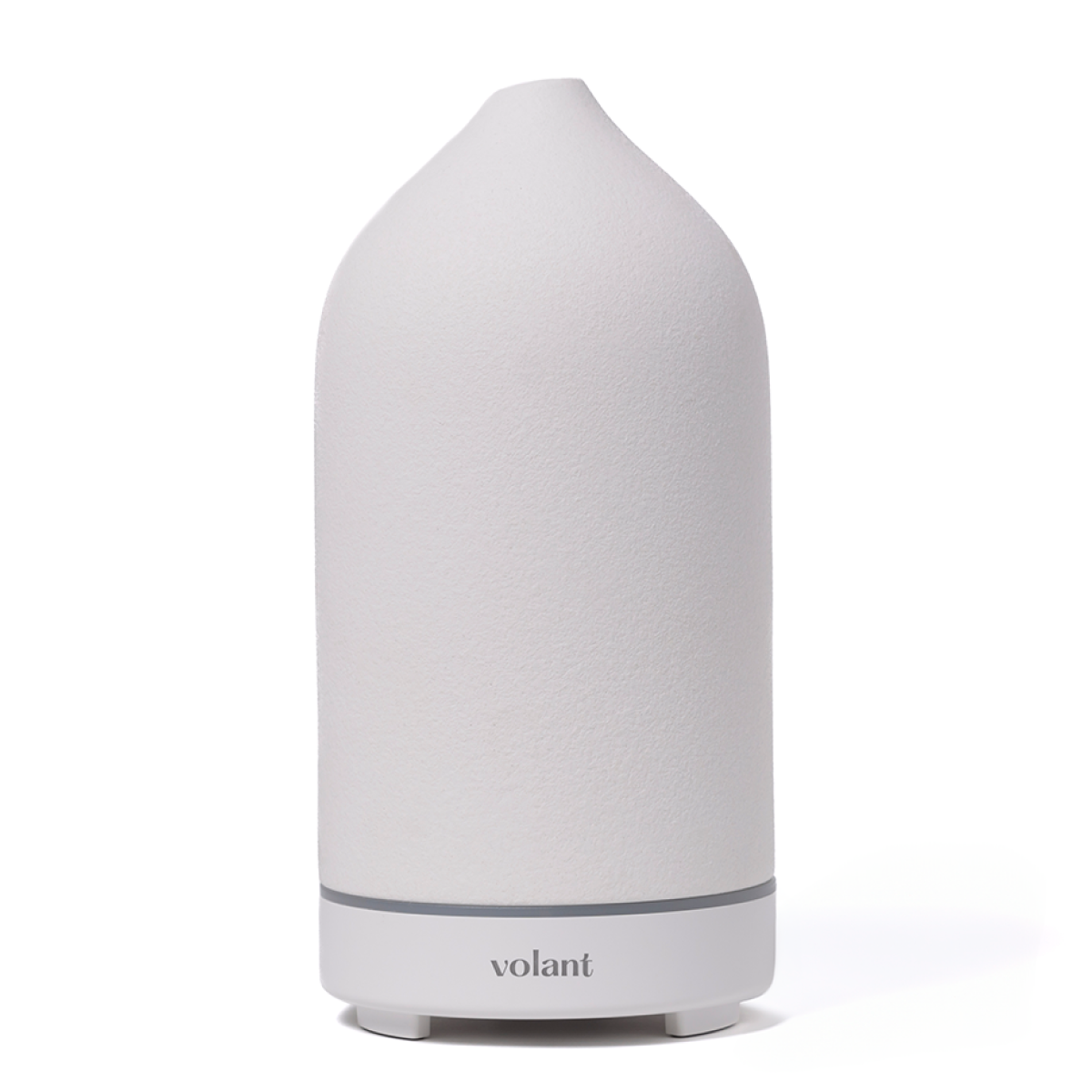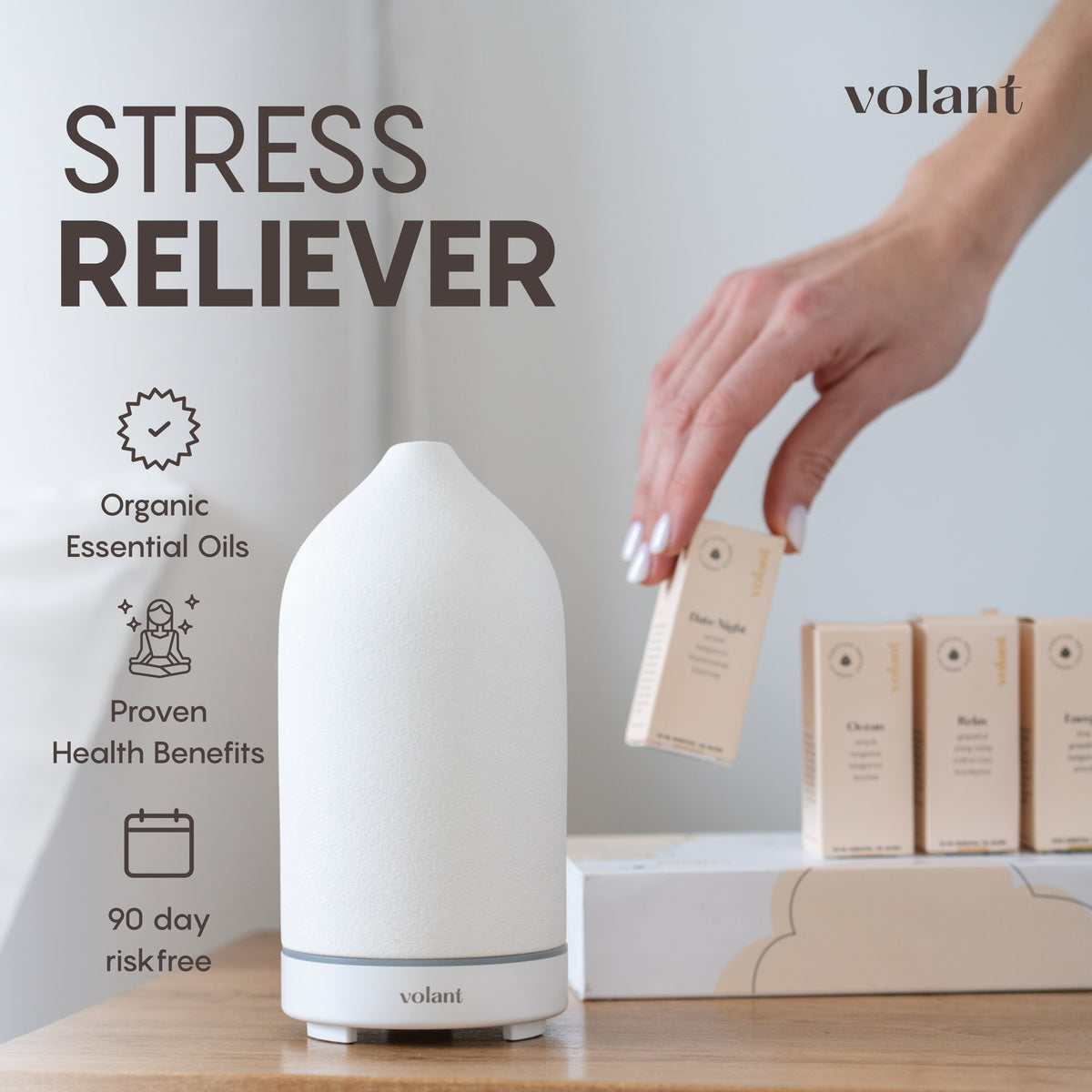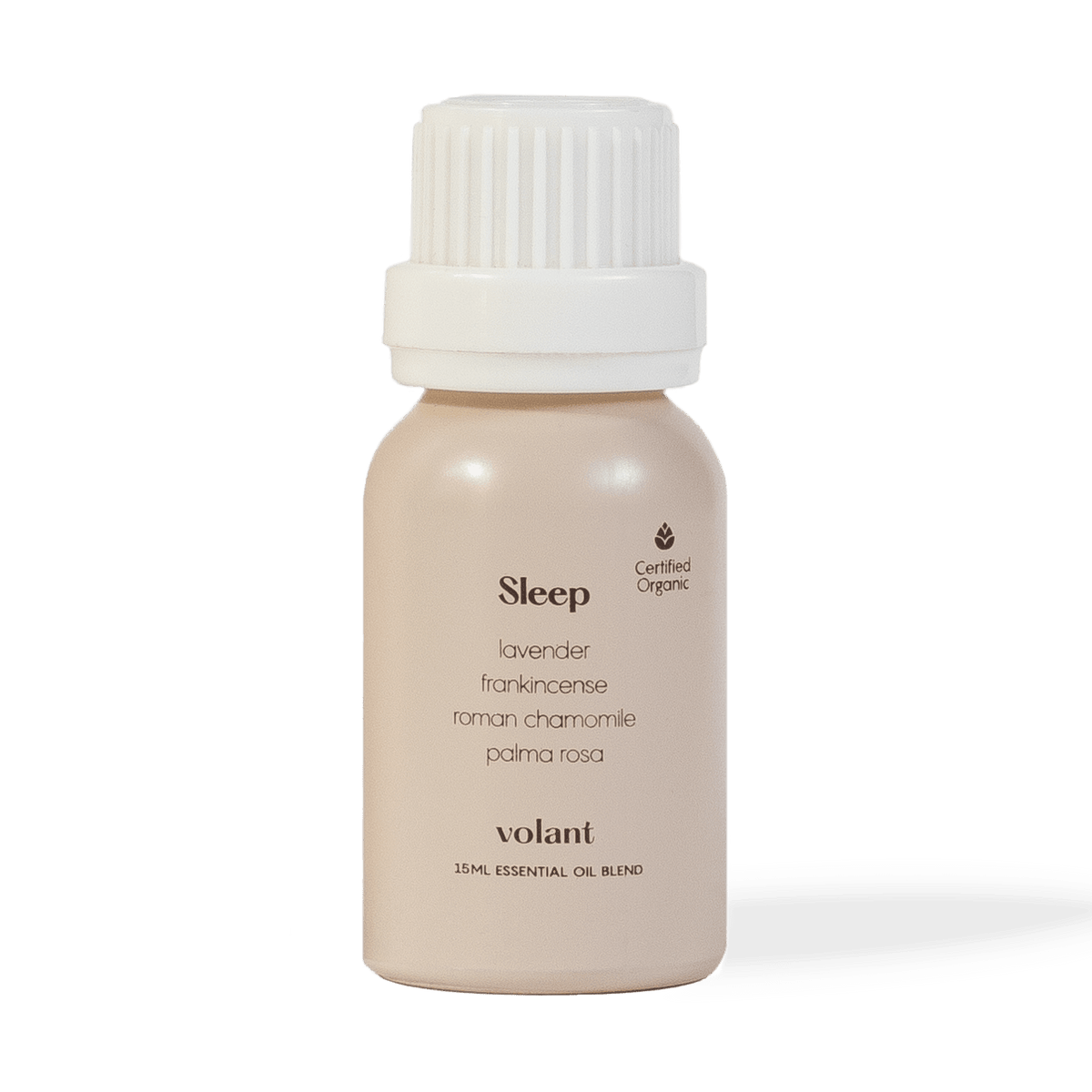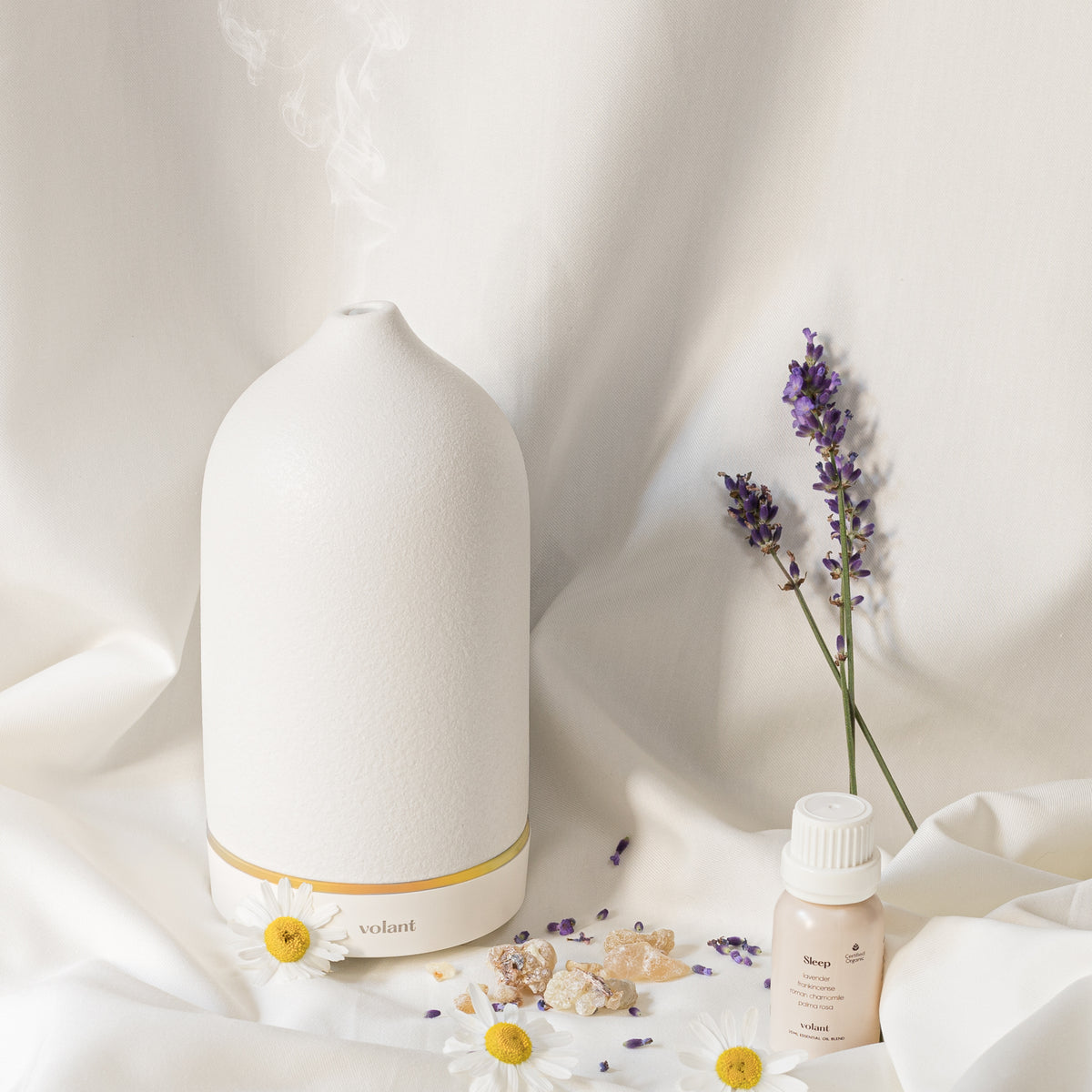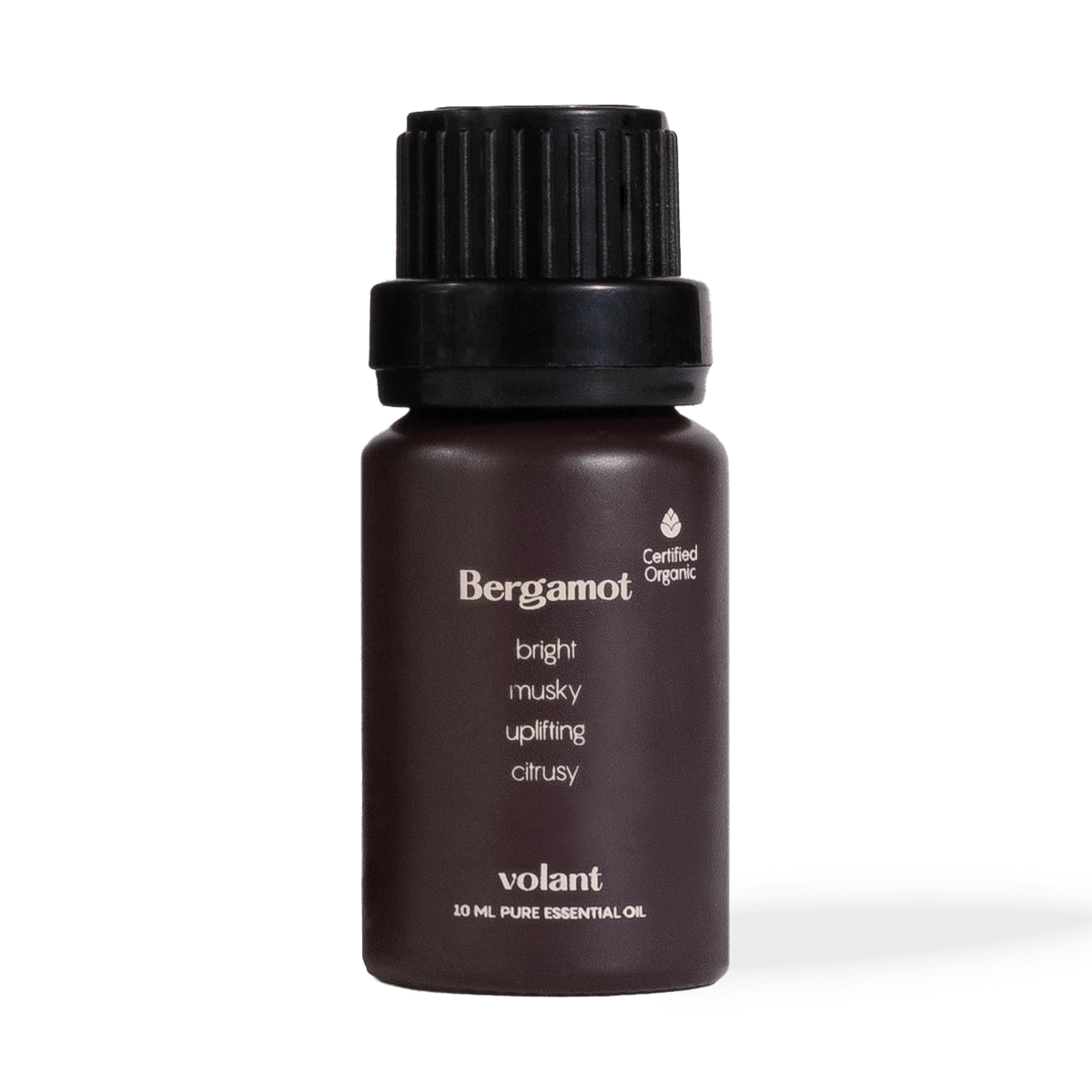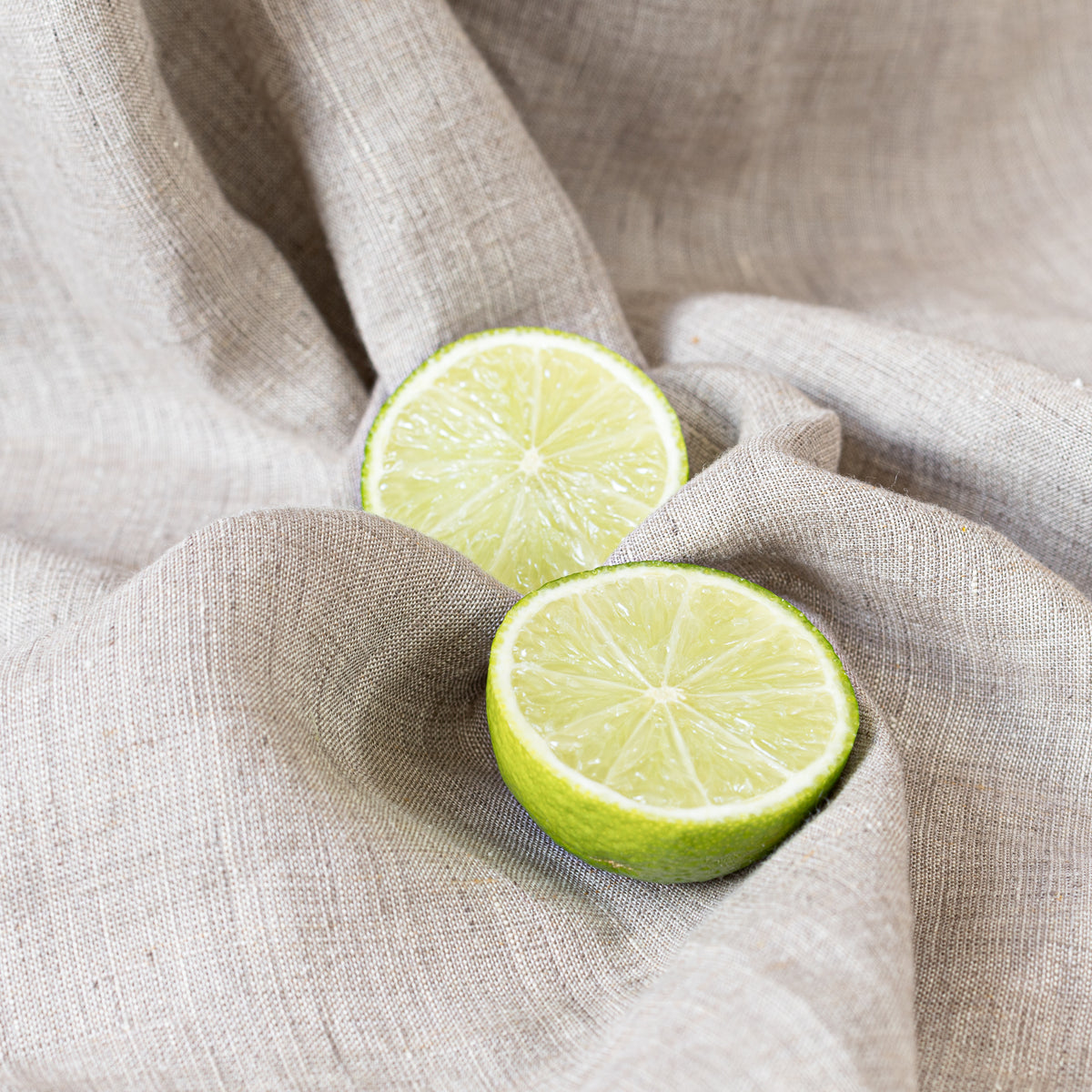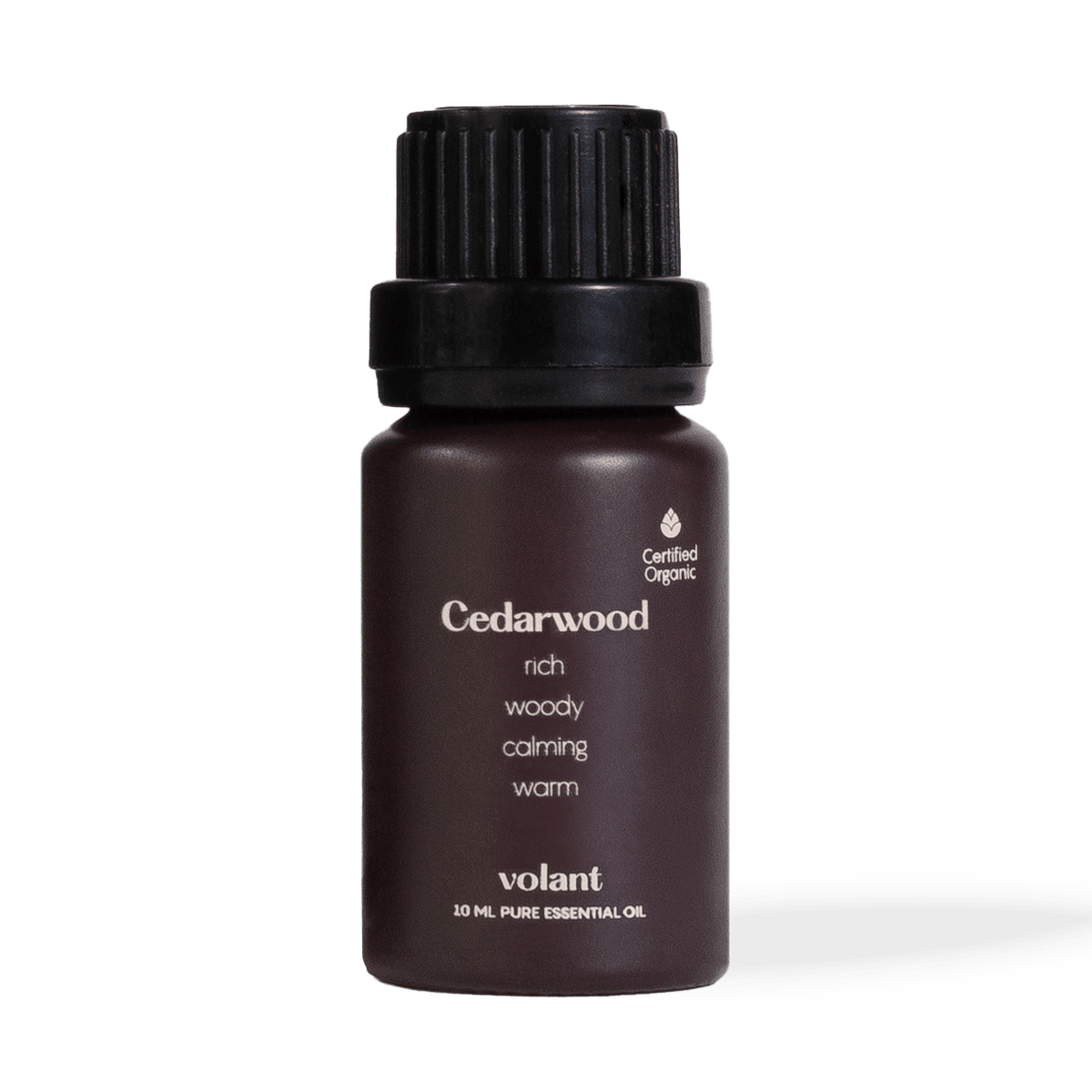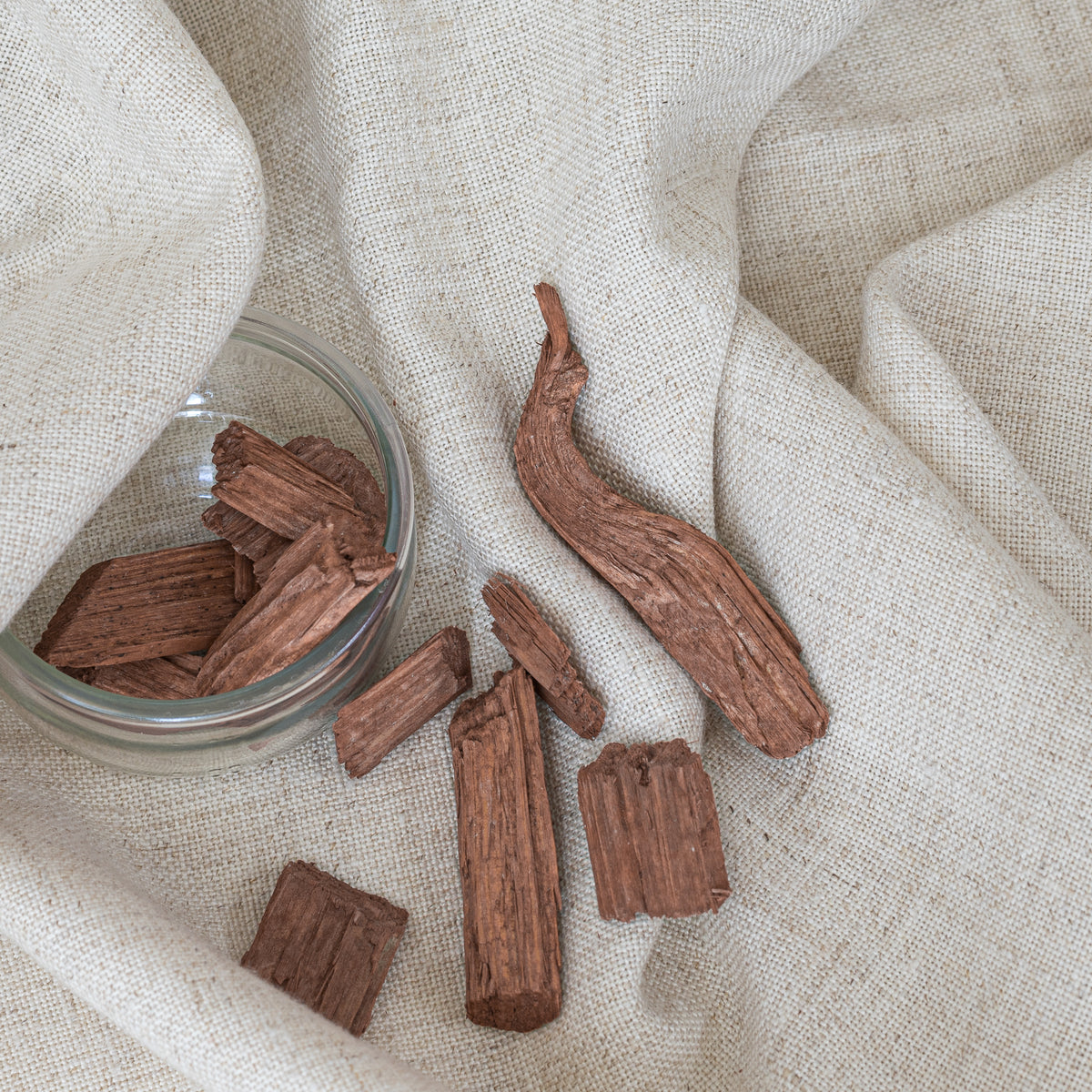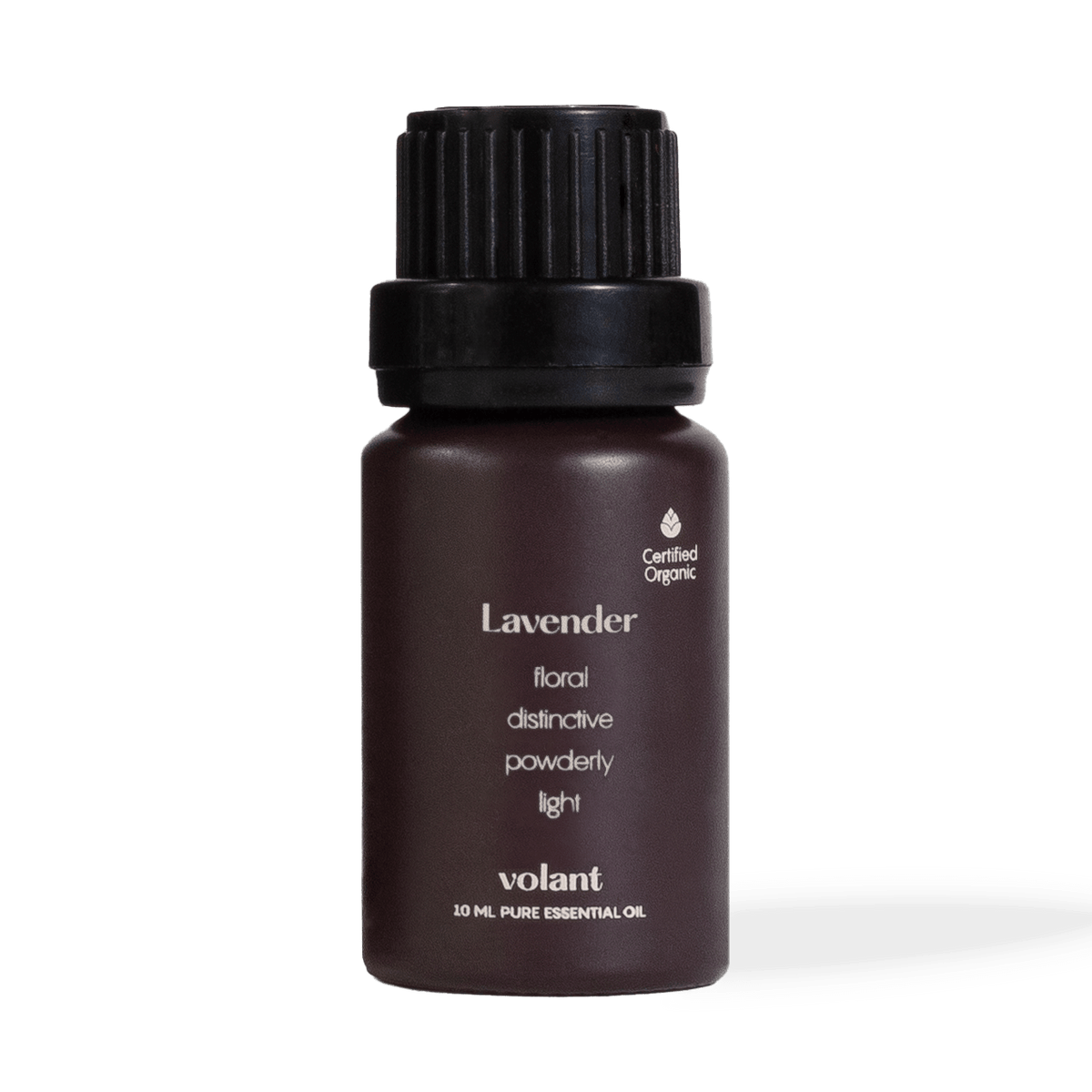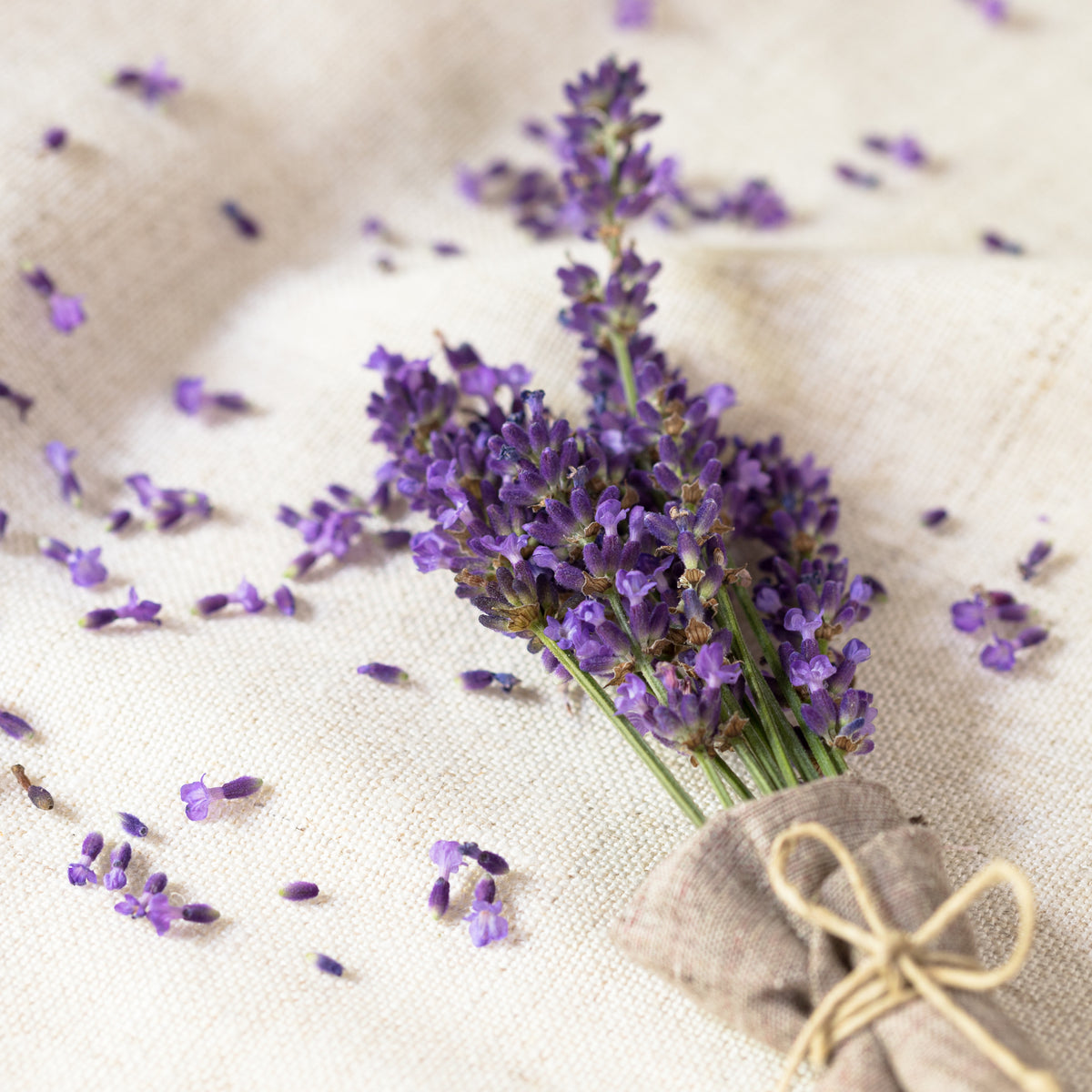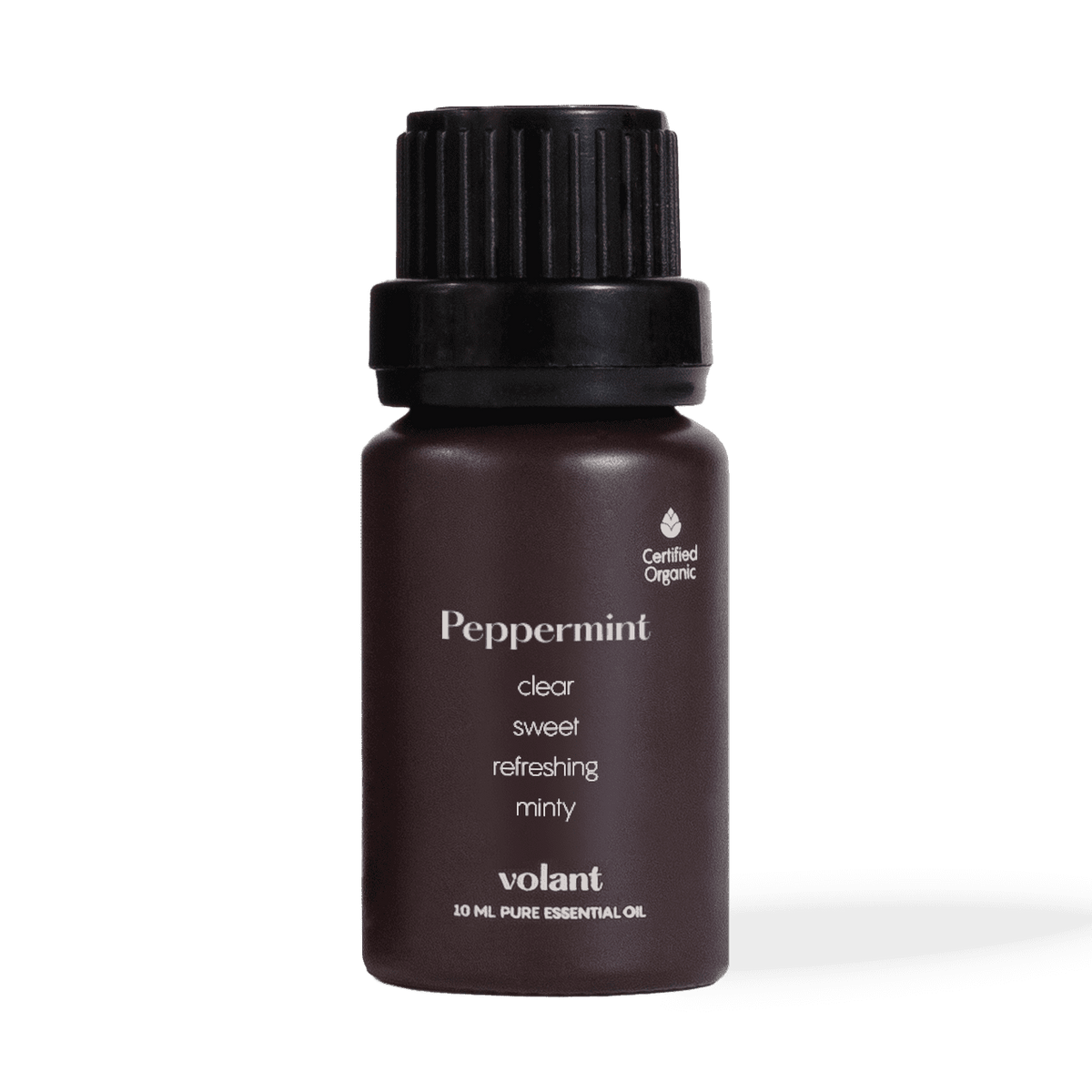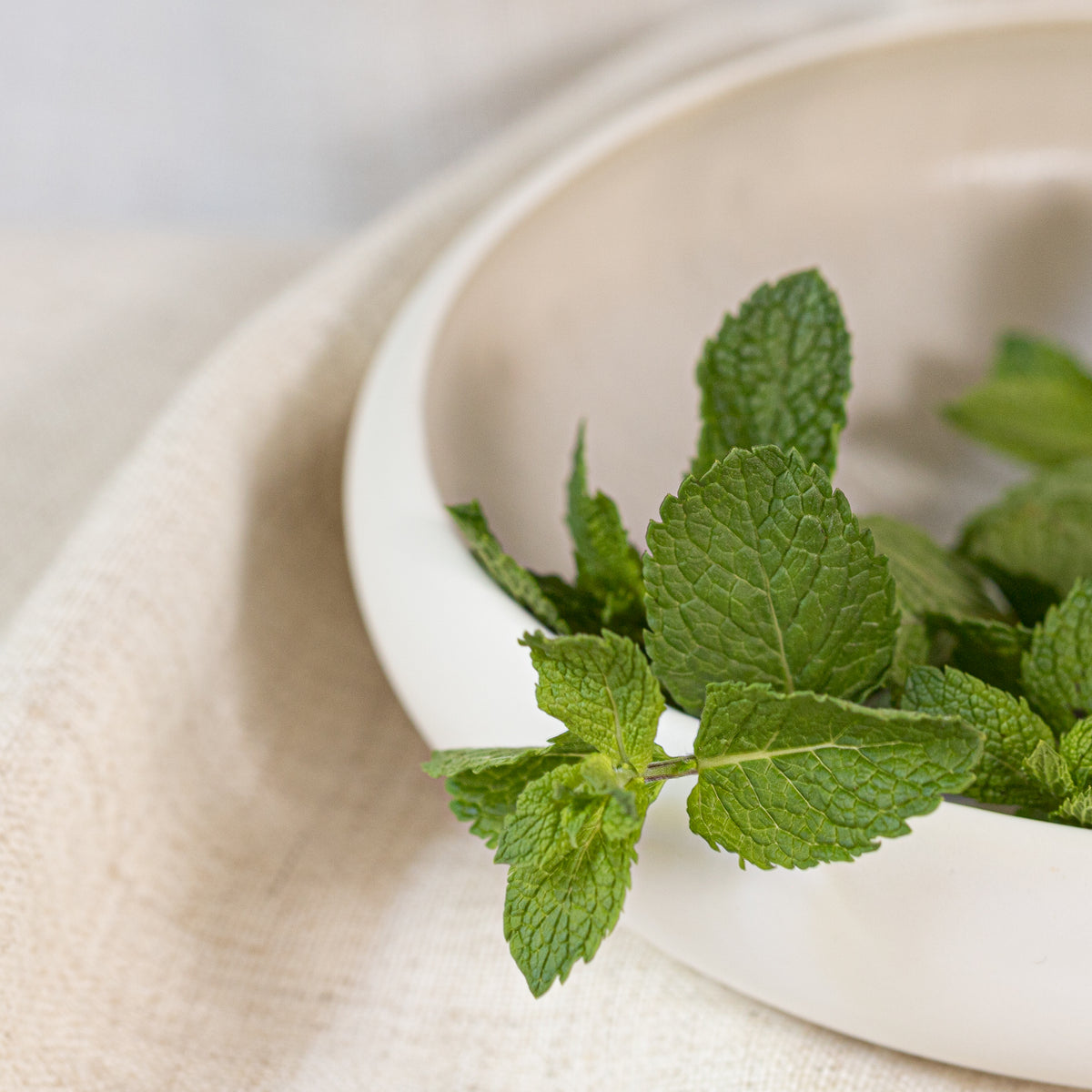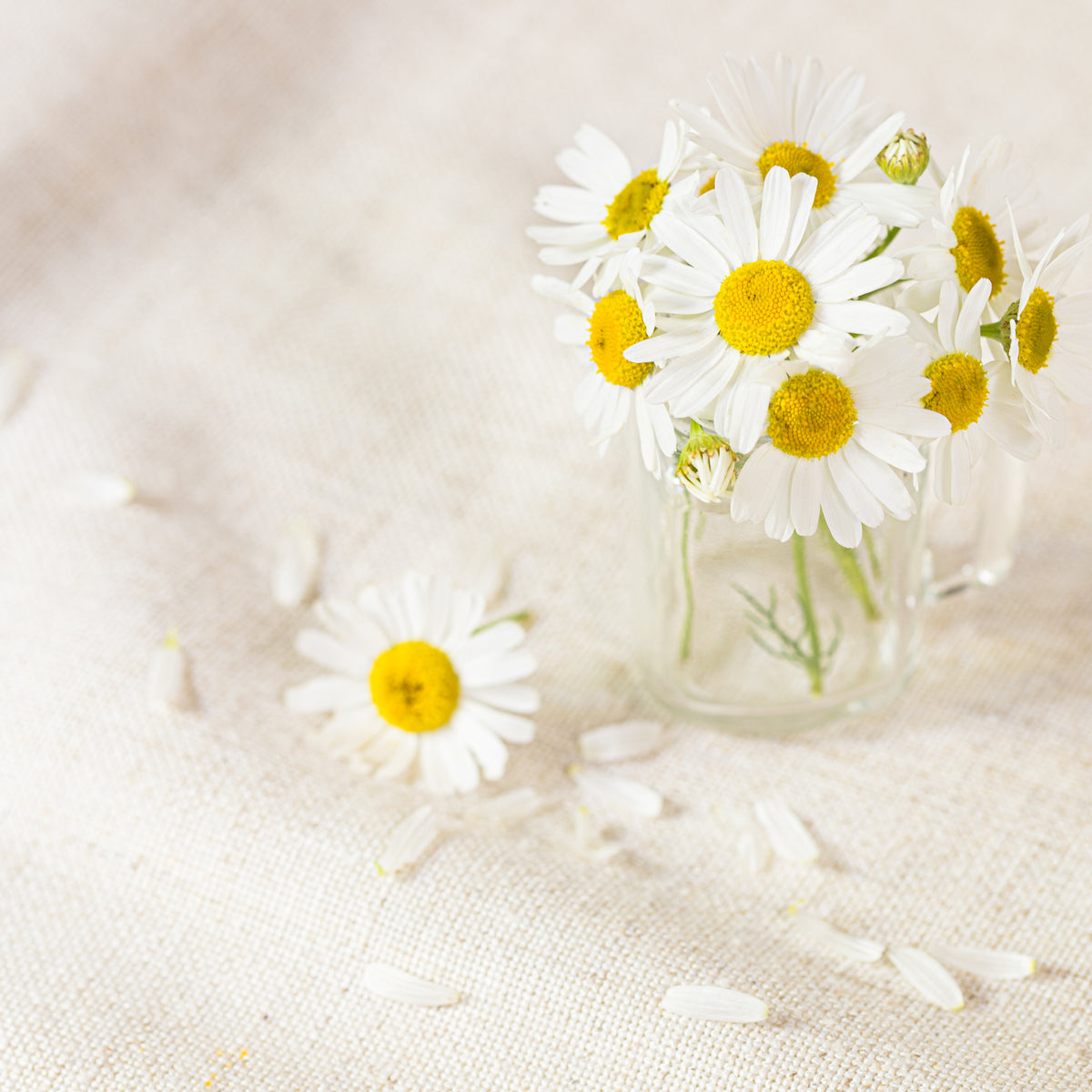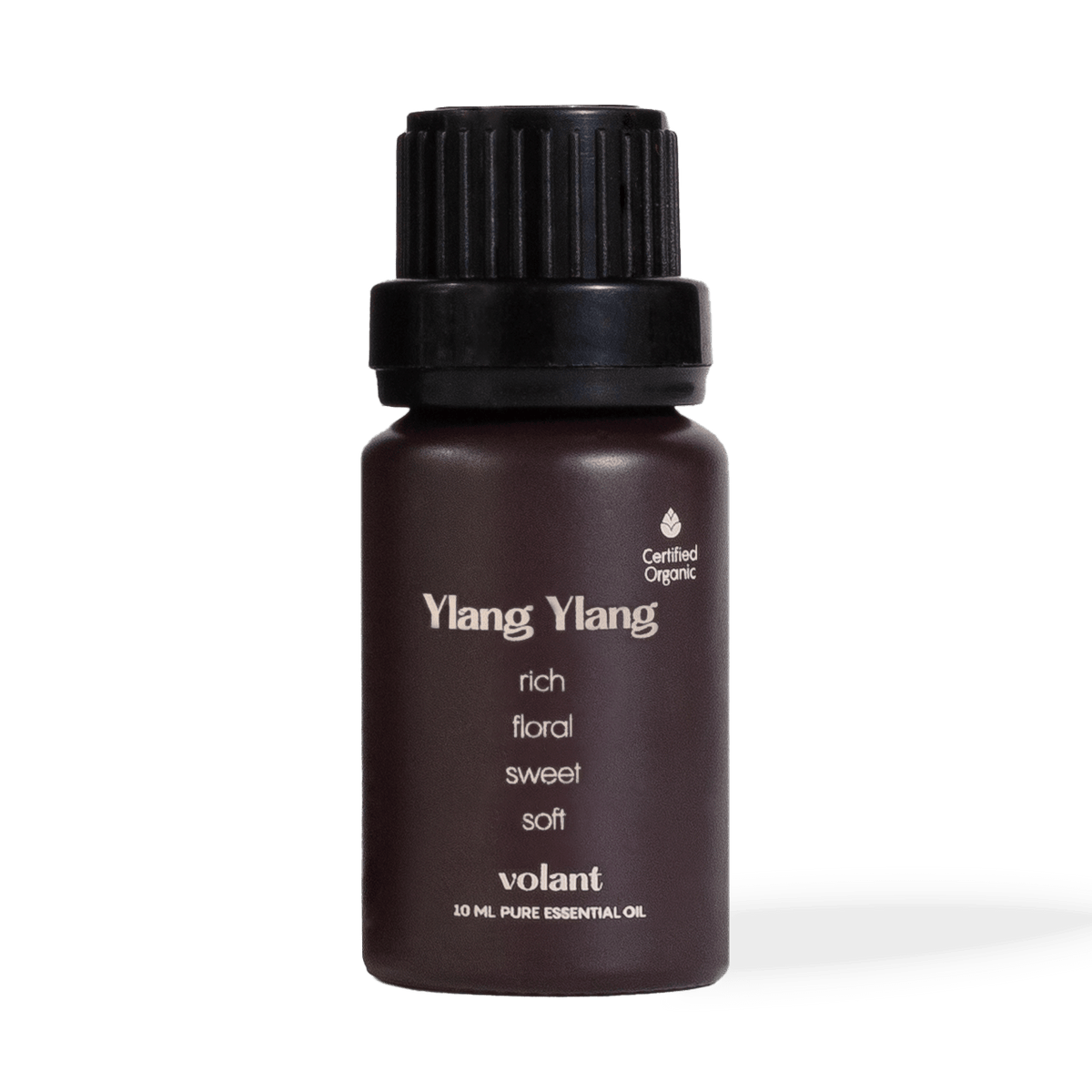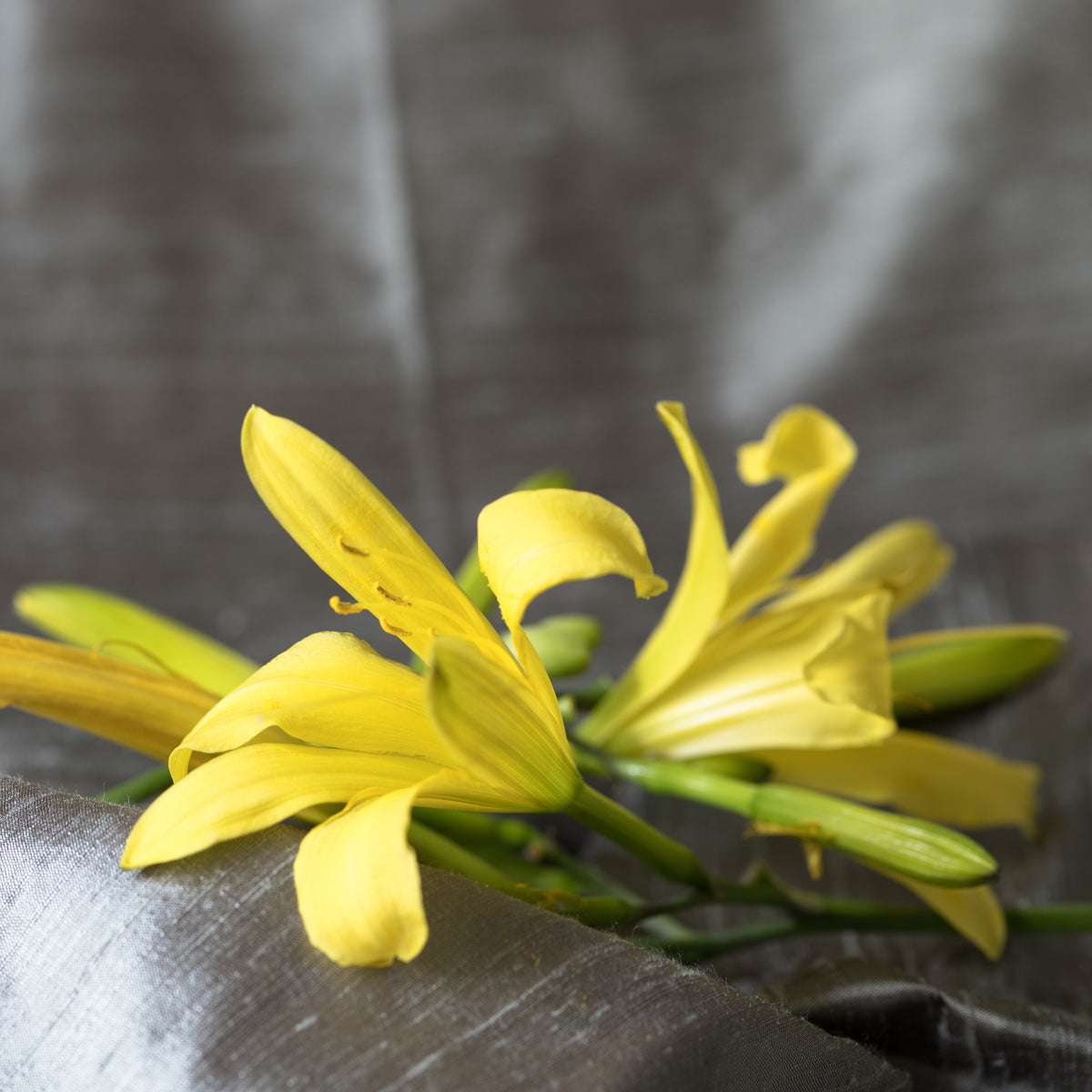Fortunately, the secret to a great night’s sleep is a lot simpler than you may have thought. You can ditch the mindless scrolling, screen time and chemical-laden sleeping tablets in favour of a tried and tested remedy that people have been using for centuries:
Essential oils.
That’s right. Using the right essential oils for sleep will likely help almost everyone, which is where we come in!
How to use essential oils for sleep and anxiety
You could be struggling to sleep because of a physical issue like high blood pressure, you may be suffering from full-blown insomnia, or your everyday life may be causing you the kind of stress that prevents sleep. Whatever the cause, when you learn how to use essential oils for sleep, you may find that the other issues you’re experiencing are alleviated too.
All of the essential oils outlined here have numerous benefits, so you’ll give your health and well-being a boost every time you use them.
The good news is that it’s very easy to start using essential oils for relaxation and sleep and all the other good things they offer. Here are some easy ways to put them to work for you:
Diffusing amazing aromas

The easiest and most effective way to reap the benefits of essential oils is by using an aroma diffuser. Just fill the container with water and then add drops of essential oil before choosing your time setting. Volant’s diffusers have an 8-hour setting with a switch to turn the light off, meaning your diffuser will be silently working all night to ensure you stay sound asleep.
Spritz a soporific mist

Spray a fine, luxuriously scented mist over your linens whenever you need to unwind and relax. Remember to let the fabric dry before you come into contact with it and don’t forget to breathe deeply. This is a great option for when you are away travelling with little space to pack your diffuser or when you want to change up your usual diffuser scent on a dime.
Bid your bad mood goodbye in a hot bath

Once you’ve diluted your essential oils with carrier oil, mix a few drops into a hot bath just before you get in. You’ll get the benefits of inhaling the delicious scent as well as absorbing it through your skin in addition to the warmth relaxing your muscles, helping you unwind before bed.
Melt your troubles away with a massage

You can apply a mix of carrier oil and essential oil to your skin, focusing on pressure points for sleep or massaging tight muscles. Or if you have a partner, ask them to do this for you. Get double the effect of the right oils by diffusing them while you get a rubdown, too!
Whichever option you choose, the number of sheep you count will soon reduce dramatically!
The best essential oils for sleep
If you’re ready to swap tired for energised and inspired, read on to find out more about the best essential oils for sleep.
Bring on the ZZZs with bergamot

Bergamot essential oil is an anti-inflammatory and anti-bacterial agent that can reduce blood pressure and heart rate, both of which are good for insomniacs. It can also help reduce stressful thoughts, one of the most common enemies of a good night’s sleep.
What the science says: In a sleep study, one set of patients was exposed to a placebo and the other to a scent made of lavender, ylang ylang and bergamot oils. Those in the second category reported a major increase in the quality of their sleep.
Bergamot is a brilliant calming essential oil for sleep and anxiety, and it maintains important neural pathways in the brain.
Calm down with cedarwood

Cedarwood is another fantastic essential oil for relaxation and sleep. Its woodsy scent is good for alleviating stress and can help take the edge off a difficult day.
What the science says: Studies have shown that the cedrol in cedarwood lowers anxiety by boosting certain chemicals in the brain and by reducing cortisol, the main stress hormone. Cedarwood may help lower blood pressure and slow your rate of breathing. This will help you relax and could make getting to sleep a lot easier.
Inhaling cedarwood essential oil also triggers the release of serotonin, an important chemical for bone health, sexual desire, sleep, wound healing and even blood clotting. It’s famous for its sedative qualities, too, which is why it’s on this list!
Chill out with clary sage

If you think your inability to sleep may be linked to feelings of depression, clary sage essential oil may be the perfect choice for you once you’re more practised on how to use essential oils for sleep.
Many people find that clary sage oil is very effective at combating ruminative thoughts and use it to soothe their bodies and minds.
What the science says: A study confirmed that when this oil was inhaled by women undergoing stressful medical procedures, it relaxed them and reduced their blood pressure and respiratory rate.
This natural sedative may help you fall asleep more easily and help you rest the entire night. It reduces cortisol levels, one of our stress hormones, so it’s an excellent way to prepare your body for slumber.
Lie back with lavender

One of the most famous essential oils for sleep problems and many other ailments, lavender essential oil is so well known with good reason. It lowers our heart rates, brings our body temperatures down and reduces blood pressure. Not incidentally, these are precisely the processes that our bodies need to go through when we want to get to sleep!
What the science says: Studies have shown that repeatedly exposing mice to lavender causes them to fall asleep more quickly and stay asleep longer.
This oil is also incredible at combatting anxiety, a state that is linked to sleeplessness more often than not.
Pass out peacefully with peppermint

As is the case with bergamot, people are often surprised to learn that peppermint essential oil is one of the best essential oils for sleep. It works by clearing your head, literally!
As relaxing as its pleasant scent is, if you’re at all sensitive to dust or suffer from allergies of any kind, peppermint oil is a wonderful way to ease your symptoms. As your nasal passages find soothing relief, you’re much more able to relax enough to fall asleep. It also soothes your muscles, helping you relax.
What the science says: Research tells us that aromatherapy treatments with peppermint and other essential oils certainly do improve sleep quality, making it an effective non-pharmacological treatment for sleeplessness.
Relax with Roman chamomile

One of the better-known treatments for restlessness, Roman chamomile essential oil may help calm and relax your mind enough to help you get to sleep. Its fresh fragrance with a hint of apple could be an ideal remedy if you suffer from anxiety in general, or specifically around bedtime.
What the science says: Roman chamomile has been used for sleep and anxiety for hundreds of years now and scientists’ findings are proving what our ancestors believed. This oil can safely be used to promote sleep in people of all ages, so it’s a great option for a diffuser in a restless little one’s bedroom.
Snooze with sandalwood

Sandalwood essential oil’s rich scent may come in very handy next time you’re applying your knowledge of how to use essential oils for sleep. Its ability to promote deep rest is legendary due to its mood-balancing effects.
What the science says: Sandalwood oil’s sedative effect on the nervous system has been shown to decrease waking time in sleep-disturbed rats significantly. This same study also revealed an increase in non-rapid eye movement (NREM) sleep in these animals.
Many people find that sandalwood oil evens them out emotionally, making it the perfect choice when you need to unwind and relax. The nice thing with sandalwood is that it
Get yawning with ylang ylang

Extracted from Asian tropical trees, ylang ylang essential oil’s soft, fruity scent lowers blood pressure and slows our heart rates down, setting our bodies up for sleep naturally.
What the science says: College students exposed to either ylang ylang essential oil reported a marked improvement in the quality of their sleep compared with sweet almond oil in one study.
It’s believed that ylang ylang oil helps balance out both sides of the brain whilst simultaneously working to process and release negative emotions like fear and anger. Combining it with bergamot before bedtime is recommended because the two oils together will normalise your blood pressure, even out your pulse and reduce symptoms of anxiety and stress. They’re both marvellous essential oils for relaxation and sleep.
Essential oils for sleep apnea
Along with restless leg syndrome, narcolepsy and insomnia, obstructive sleep apnea (OSA) is one of the most common ailments affecting adults between the ages of 30 and 70 years old in the United Kingdom.
Defined as intermittent airflow blockage during sleep, OSA can be found in all age groups, but it is also linked to obesity and age. As many as 25% of Britons - nearly 10 million people - have mild, moderate or severe OSA.
As is the case with almost everything, if you have sleep apnea, it’s as important to treat the cause as it is the symptoms. This means that, along with using recommended essential oils for sleep apnea, if you decide to go this route, you should also address possible causes. Possible culprits include asthma, congestive heart failure, high blood pressure, polycystic ovary syndrome and type 2 diabetes, so be sure and see a doctor to determine why you’re dealing with OSA.
Recently, using essential oils for sleep apnea has become a more relied-on remedy. Scientific research is confirming that essential oils can do us a lot of good, and one of the areas in which they can help us tremendously is in our sleep.
Apply them topically or inhale them, using a diffuser or spray. You can also apply a mixture of essential and carrier oils to a hot towel and place this on your face or body as a scented, soothing compress.
FAQs
How should I use essential oils for sleep?
Once you’ve properly diluted your oils, rub a few drops on your hands, neck and chest. You can also put them in your diffuser, on a piece of tissue, spray your linen and/or room with them or add them to a pre-bedtime bath.
What are the best essential oils for sleep?
Bergamot, clary sage, peppermint, sandalwood, lavender, chamomile, cedarwood and ylang ylang essential oils are all highly recommended essential oils for sleep.
Will the essential oils for sleep and anxiety that I’m using expire?
Essential oils don’t necessarily go off in the same way that food does, but they change and may lose their effectiveness. This process makes it difficult to determine how safe they are to use, so adhere instead to expiry dates as a general rule.
When I’m using essential oils for sleep and anxiety, how long will they take to start working?
You can expect to start feeling essential oils’ effects in less than three minutes! However, if you don’t, more is not necessarily better. Try a different method of use or a different essential oil if it isn’t working yet for you.
Are there any recommended essential oils for sleep apnea?
Try eucalyptus essential oil, lavender and peppermint essential oils if you or someone you know suffers from sleep apnea. This will help open up the airways and promote relaxation all at once.
Smell your way to better sleep

It can’t be denied that certain scents have particular effects on us. The olfactory nerve receptors in the mucosa of our nasal cavities relay sensory data to our brains, and when we smell certain aromas, these can send calming signals to the brain. Using the right fragrances can give us the help we need in getting some sleep in many circumstances.
However, whether you’re using essential oils for sleep apnea or for any other reason, it’s vital that you bear in mind that they’re adaptogens. This means that different people adapt to them...differently. An essential oil for sleep that calms you may have a stimulatory effect on someone else.
Do your research before you choose essential oils and blends and take notice of how they make you feel when you use them. They’re packed full of powerful properties and should be treated responsibly if you’re going to get the best benefits from using them.
Last but not least, always use high quality, organic, pure essential oils. Volant has an incredible range of essential oils that are 100% pure and organic, ensuring that every whiff is packed full of sleep-enhancing benefits. All you need to do is choose your favourites and use them before bed.
If sleep has been eluding you, now’s the time to try a natural remedy. Essential oils could be the secret that stops you from counting sheep for good.


